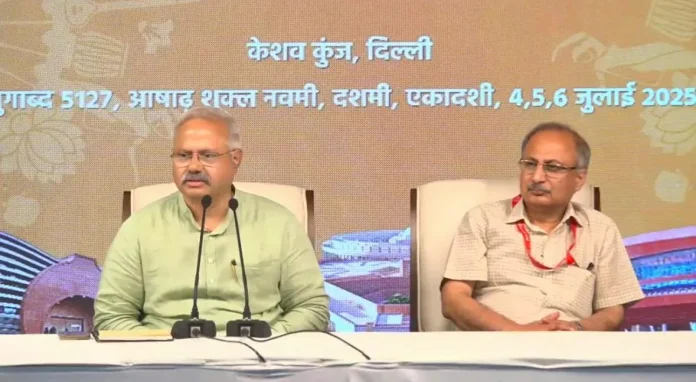NEW DELHI, July 7: Rashtriya Swayamsevak Sangh (RSS) leaders on Monday reported “notable positive developments” in conflict-ridden Manipur, crediting the work of its volunteers on the ground, even as they acknowledged that complete normalcy in the state would require more time.
Addressing a press conference in New Delhi, RSS’s Akhil Bharatiya Prachar Pramukh, Sunil Ambekar, alongside senior functionary Anil Agarwal, said, “RSS volunteers are actively working to restore peace and foster dialogue among the Meitei and other affected communities. While significant improvements are visible, the path to complete peace is ongoing.”
The RSS said it is currently running inclusive outreach programmes in border and conflict-affected areas of Manipur, aiming to bridge divides and foster trust among communities. “People from various backgrounds are joining the initiatives, reflecting growing public confidence,” Ambekar added.
Turning to broader national issues, the RSS commented on the ongoing controversy over the terms “socialist” and “secular” in the Indian Constitution. Ambekar linked the additions to the Emergency period (1975–77), calling it a “dark chapter” in Indian democracy. “Democratic values were suspended, and amendments were made without a public mandate. The youth must study this phase to understand the fragility of democracy when power goes unchecked,” he stated.
On the language debate, the RSS reiterated its position that all Indian languages are “national languages.” Ambekar emphasized the importance of regional languages in primary education and day-to-day life. “We support people speaking their native tongues, and primary education should be in the regional language of the people,” he said.
When asked about recent criticism from Congress leaders—including demands to re-ban the RSS—the Sangh dismissed such statements as politically motivated. The leaders pointed out that previous attempts to impose a ban were unsuccessful due to widespread public opposition and legal challenges.

